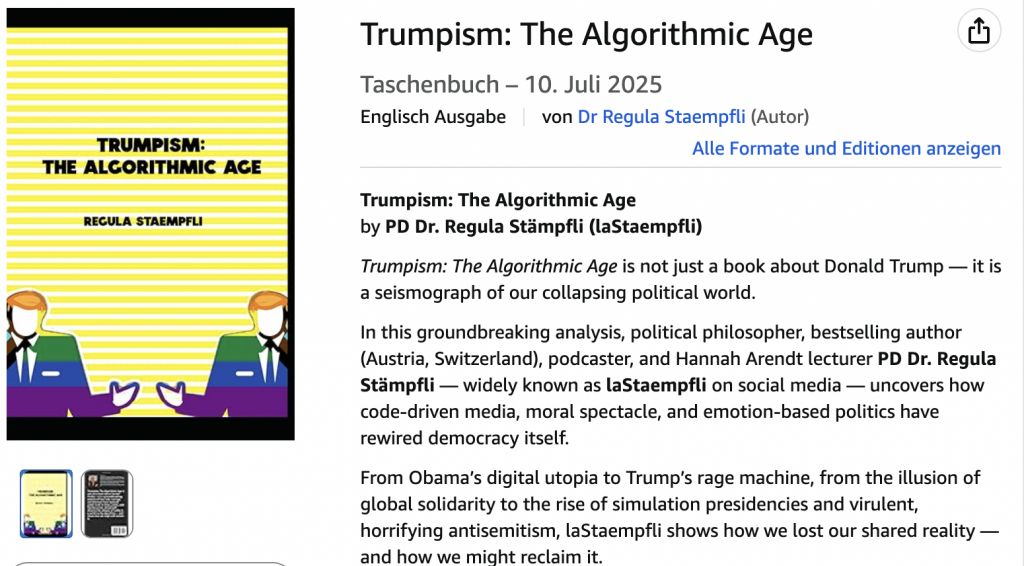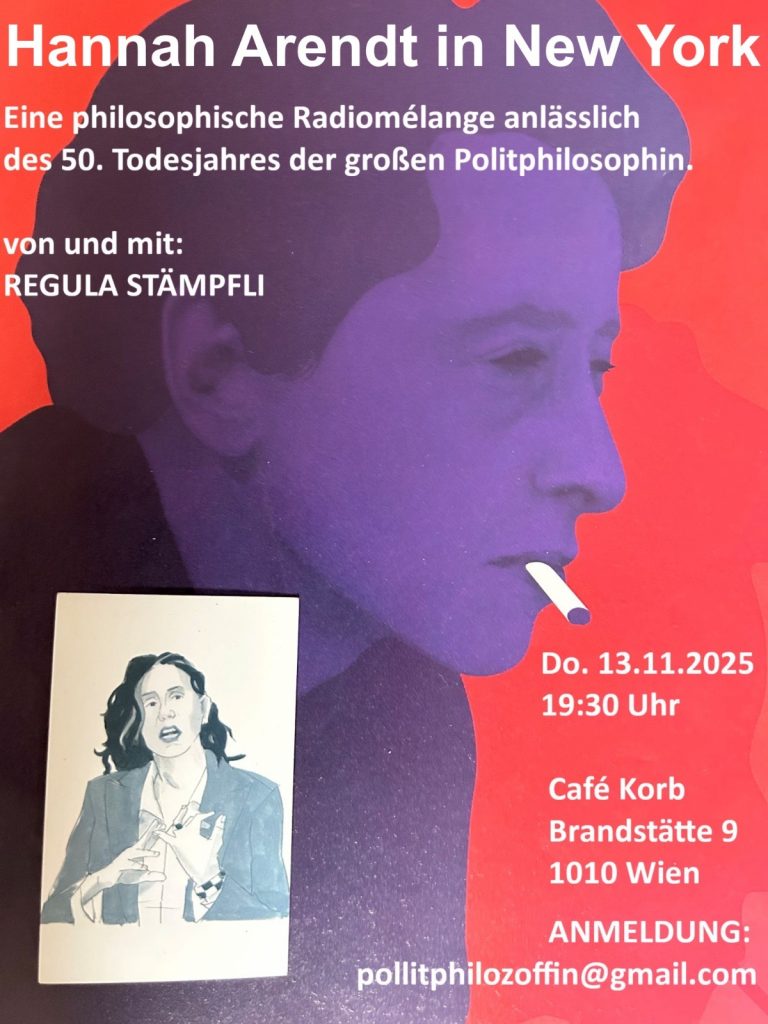I began researching Robert F. Kennedy’s assassination after reading the story of Zohran Mamdani, most likely to be the next Mayor of New York. Zohran Mamdani, born in Uganda to the Indian Elite in the African Country – an Elite which got expelled by Idi Amin in 1972, is a perfect symbol of postcolonial rebranding. Zohran Mamdani sells himself as a fiction of oppression. Islamophobia is his concept, lies are his coded tools. The story of Mamdanis Aunt wearing a hijab and being afraid to use the subway in the aftermath of 9/11 is ideology in its purest form. Mamdani had neither an aunt in N.Y. nor was there any islamophobia in N.Y. after the vicious and murderous attacks on the Twin Towers in 2001 by islamic terrorists.
This Mamdani-episode is not trivial. It reveals how post-colonial discourse, wrapped in progressive vocabulary, has become a license to rewrite history. In this narrative, the West is always guilty, the oppressed are always pure, and every fact that complicates the story is quietly deleted. The rewriting extends far beyond campus and social media. It defines our new algorithmic totalitarianism — rule by emotional marketing, where moral branding replaces truth and reality itself becomes a casualty of compassion. When I looked back at the murder of Robert F. Kennedy in 1968, I realized that the same mechanism of denial was already operating then. Kennedy was assassinated by Sirhan Bishara Sirhan, a young Palestinian who said he killed him because of his support for Israel. Yet this political fact was immediately erased — first by journalists, then by Hollywood, and finally by the cultural memory of the West itself.
There are thousands of films and conspiracy theories about John F. Kennedy’s death, but almost none about Robert’s. The reason is simple: the murderer was the wrong kind of villain. His motive — hatred of Israel — could not be integrated into the West’s moral self-image. So the story was suppressed, reframed, and ultimately forgotten.
This essay by laStaempfli, “The Forgotten Assassination: Why the West Erased RFK’s Murderer,” is part of laStaempflis larger project on media failure and elections in Western democracies — how we are sliding into a new totalitarianism built not on censorship but on marketing and fiction. The erasure of facts, from Mamdani’s invented aunt to Sirhan Sirhan’s real gun, marks the same civilization in denial.
We are living, as I have argued since Trumpism. The Algorithmic Age, not in a post-truth world but in a coded one. Algorithms do not simply lie; they curate morality. They decide which stories deserve outrage and which deserve oblivion. And in that curation, democracy itself disappears.
The Forgotten Assassination: Why the West Erased RFK’s Murderer
by Regula Stämpfli / laStaempfli
Robert F. Kennedy’s murder on June 5, 1968, should have been one of the defining political events of the twentieth century. A young senator, a civil-rights advocate, and the embodiment of postwar liberal optimism was shot dead in Los Angeles—just moments after winning the California Democratic primary and positioning himself as heir to his slain brother’s mantle. His assassin, Sirhan Bishara Sirhan, was not a CIA agent, not a mafioso, not a right-wing extremist. He was a 24-year-old Palestinian immigrant who confessed that he killed Kennedy because of his support for Israel.
And yet this fact—stated plainly in police records, trial documents, and Sirhan’s own notebooks—has been almost completely erased from public consciousness. There are hundreds of conspiracy theories about John F. Kennedy’s death, films, novels, documentaries, cults. But about Robert F. Kennedy’s? Almost nothing. The story is too uncomfortable, too ideologically dissonant, too revealing of how the West edits its own history.
1. The Wrong Assassin for the Myth
The American imagination prefers moral clarity. It can handle assassins who are white supremacists, government conspirators, or disillusioned loners. But a Palestinian killing a liberal, pro-Israel Democrat does not fit the script. The victim was a man of compassion, a defender of the poor and the marginalized. The killer claimed to act on behalf of the oppressed. It short-circuits the political circuitry of good and evil. So the story is simply not told.
2. The Left’s Cognitive Dissonance
In 1968, the global Left was in love with the Palestinian cause. “Third World liberation” had become its moral compass. When Sirhan Sirhan killed Robert F. Kennedy, the Left did not know how to respond. Could the anti-imperialist hero be antisemitic? Could a victim of colonialism murder a symbol of liberal progress? Better to say nothing, better to move on to Paris, Prague, and Berkeley. And so the silence hardened into ideology.
3. The Kennedys and the Tragedy Franchise
The Kennedy family curated its mythology carefully. Camelot, youth, destiny, glamour: their brand was martyrdom without malice. A Middle Eastern assassin driven by political hatred did not belong in that story. The family preferred to present Robert’s death as tragic fate, not as geopolitical statement. In that sense, the Kennedys themselves helped depoliticize the murder.
4. Media Convenience and Cold-War Diplomacy
The Cold War media machine found it far easier to frame the murder as a national trauma than as an international incident. To acknowledge a political motive linked to Israel and Palestine risked inflaming Middle Eastern tensions and jeopardizing American alliances. Sirhan was therefore portrayed as a “disturbed immigrant,” a man driven by obsession rather than ideology. The geopolitics of hatred were translated into the pathology of one man.
5. Denial of Antisemitism still rising – after the Shoah
In the 1960s, public discourse on antisemitism was still tentative, shadowed by the Holocaust and constrained by diplomatic sensitivity. To admit that a Palestinian had assassinated a U.S. presidential candidate over Israel would have forced a reckoning the world was not ready for: the reality that antisemitism had survived, mutated, and now wore the costume of anti-imperial resistance. The West preferred denial to confrontation.
6. Hollywood’s Selective Courage
Cinema thrives on villains who are safe to hate: the CIA, the Mafia, white nationalists, capitalists. A Palestinian assassin motivated by rage at Zionism is too risky for producers, too volatile for the global market, and too morally complex for the algorithm of empathy. There is no JFK-style masterpiece about RFK because Hollywood fears the politics of the truth more than the bullets of the past.
7. The Algorithmic Censorship of the Present
Today’s digital culture reinforces the same blindness. Social-media platforms elevate narratives of victimhood and suppress anything that disturbs the hierarchy of empathy. To say that a Palestinian murdered Robert F. Kennedy is to violate the algorithm’s moral code. It is not “trending,” it is not “shareable,” it risks “offending communities.” Thus, the truth dissolves in the digital fog of selective compassion.
8. 1979 and the Legacy of Delusion
History repeated itself just a decade later. In 1979, large parts of the Western Left welcomed the Iranian Revolution and Ayatollah Khomeini as liberators from imperialism. Feminists, Marxists, and post-colonial scholars were slow to see that they had embraced a theocracy. The same blindness had already allowed them to ignore Sirhan’s motive. The habit of seeing every Islamist as an anti-imperialist hero had begun much earlier — with the forgotten assassination of 1968.
9. Academic Capture and Cultural Denial of Jew-Hatred
Universities followed suit. Departments of Middle Eastern studies turned the Palestinian struggle into a sacred narrative of resistance. Within that moral framework, Palestinian political violence could only be understood as reaction, never as aggression. The Kennedy case was thus ideologically unspeakable: a counter-narrative too heretical to cite. Even now, few historians dare to say the obvious sentence — that RFK was murdered because of his stance on Israel.
The Algorithm of Silence
Fifty-seven years later, the world remembers the Kennedy smile, the voice, the poetry of his campaign, but not the name of his assassin. Ask any young journalist or filmmaker today who killed Robert F. Kennedy, they will never come up with the motives (Anti-Israel) nor the name oft he Palestinian assassin. Even many historians must look it up. The name is missing from the collective memory because it does not fit the postcolonial fiction. The idea that Liberalism is murdered by the political Islam is just not in the ideological framework of the academics & intellectuals. We live in an age of algorithmic amnesia, where stories that disturb the binary of oppressor and oppressed are quietly de-prioritized. The murder of Robert F. Kennedy has become a data ghost — searchable, factual, but emotionally unavailable.
Hannah Arendt would have recognized this as the victory of ideology over reality: when facts lose the power to illuminate because they no longer fit the code of belonging. The truth of 1968 is too inconvenient for today’s moral operating systems.
Robert F. Kennedy’s assassination was not only a tragedy — it was a warning. A warning that the future of democracy depends on truth and remembering facts – especially when they do not fit into the political fiction that rules the public discourse. The bullets that killed RFK 1968 came from a man who hated the West, Israel and the United States of America. The silence that followed the crime came from a culture that feared its own reflection.
And the algorithm still runs.











